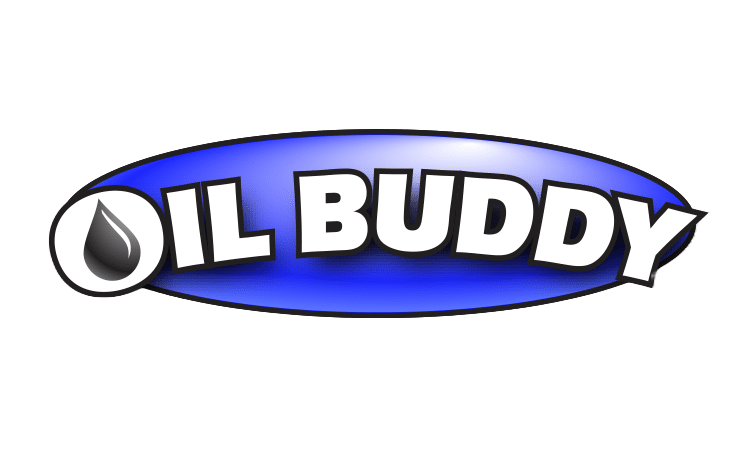Maximizing Fleet Efficiency: A Comprehensive Guide to Determining the Optimal Oil Change Frequency for Your Commercial Fleet
Welcome Aboard the Oil Buddy Blog, your compass for navigating the complexities of commercial
fleet maintenance
best practices.. In the dynamic realm of transportation, a well-maintained fleet isn't just a business asset—it's the engine driving success. One of the critical components contributing to your fleet's overall health is the frequency of
oil changes. In this extensive guide, we'll dive deep into the myriad factors influencing how often you should schedule an
oil change for your commercial fleet, ensuring your engines operate seamlessly, endure longer, and minimize operational costs.
The Foundation of Fleet Health - Understanding Oil Change Intervals
Your fleet's engine is the heartbeat of your business, and the quality of its lifeblood—oil—matters significantly. Determining the right oil change interval is paramount for maintaining a healthy engine and preventing potentially costly repairs. Let's explore the key factors impacting oil change intervals:
Vehicle Usage:
- High-mileage vehicles, those that have accumulated a substantial number of miles over time, undergo heightened wear and tear due to prolonged exposure to road conditions and environmental factors. As a result of this increased stress on the engine and its components, it becomes imperative to schedule more frequent car engine oil changes. Regular oil maintenance becomes a crucial element in mitigating the adverse effects of extended use, ensuring the longevity and optimal performance of the vehicle.
- Vehicles actively involved in stop-and-go driving patterns or subjected to prolonged periods of idling face a unique set of challenges. The constant starting and stopping, as well as extended idling, contribute to an accelerated breakdown of the
engine oil. This accelerated degradation diminishes the oil's ability to effectively lubricate the engine components, potentially compromising the overall performance and longevity of the vehicle. To counteract this, a proactive approach involving more frequent
quick oil changes becomes necessary to uphold the lubrication standards essential for the smooth operation of the engine under such demanding conditions.
Oil Type:
- The selection of the appropriate oil for your vehicle stands as a critical factor in not only ensuring optimal engine performance but also in establishing the requisite intervals for oil changes. Different types of oils bring unique properties and characteristics to the table, and understanding these distinctions is key to maintaining the health and longevity of your vehicle's engine.
- Synthetic oils emerge as a noteworthy option in this realm, often presenting extended change intervals when juxtaposed with their conventional counterparts. The advanced molecular composition of synthetic blend oil imparts them with superior lubricating qualities, heightened stability under varying temperatures, and increased resistance to degradation over time. These attributes collectively contribute to a more prolonged and effective service life for the oil, translating into fewer required changes and potentially reducing overall maintenance costs.
However, while synthetic oils may offer these advantages, a judicious approach is necessary. It is imperative to delve into your vehicle manufacturer's recommendations, which serve as a valuable compass in navigating the vast landscape of oil choices. Your manufacturer's insights take into account the specific make and model of your vehicle, as well as the nuanced operational demands of your fleet. By aligning your oil selection with these tailored recommendations, you not only harness the benefits of a particular oil type but also ensure that it aligns seamlessly with the unique requirements of your fleet's day-to-day operations.
In essence, the judicious choice of oil type, guided by the manufacturer's specifications, represents a strategic investment in the longevity and efficiency of your fleet. By embracing this proactive approach, you not only optimize engine performance but also establish a comprehensive maintenance regimen tailored to the intricacies of your fleet's operational landscape, contributing significantly to the overall health and resilience of your vehicles.
Environmental Conditions:
- The impact of environmental conditions on your vehicle's engine performance cannot be overstated. Harsh weather conditions, ranging from frigid cold to scorching heat, along with dusty and challenging terrains, collectively pose significant challenges to the longevity and efficacy of your engine oil. These adverse conditions can expedite the breakdown of oil, diminishing its lubricating properties and potentially compromising the overall health of your engine.
- In the face of such formidable environmental stressors, adopting a proactive stance towards maintenance becomes paramount. It might be judicious to consider more frequent oil changes as a strategic measure to counteract the accelerated degradation of oil in challenging environments. This approach ensures that your engine is consistently supplied with fresh, high-quality lubricant, thereby fortifying it against the detrimental effects of extreme temperatures, dust, and other environmental factors.
- Extreme temperatures, whether soaring in the summer or plummeting in the winter, can exert undue stress on your engine and its vital components. In sub-zero conditions, oil viscosity can be compromised, potentially leading to inadequate lubrication. Conversely, in high-temperature environments, the oil can thin out, diminishing its protective qualities. Recognizing these nuances, a tailored oil change regimen that aligns with seasonal variations becomes a strategic necessity, safeguarding your engine's resilience against the rigors of unpredictable weather patterns.
- Dusty environments present another set of challenges, as particulate matter in the air can infiltrate the engine and mix with the oil, creating an abrasive mixture. This abrasive concoction accelerates wear and tear on engine components, underscoring the need for more frequent oil changes to flush out contaminants and maintain an optimal lubrication environment.
In essence, by acknowledging and addressing the specific environmental stressors your vehicle faces, you can cultivate a maintenance strategy that not only acknowledges the challenges posed by extreme weather and dusty conditions but actively works to mitigate them. This foresighted approach not only preserves the integrity of your engine but also contributes to the overall longevity and reliability of your vehicle, ensuring that it operates at peak efficiency, regardless of the environmental challenges it encounters.
Engine Health Monitoring:
Invest in regular engine health assessments to gauge the overall condition of your fleet's engines.
Monitoring key engine parameters can provide valuable insights into whether adjustments to oil change intervals are necessary.
Tailoring a Schedule to Your Fleet's Unique Needs
Customized Fleet Assessments:
- Collaborate with professional fleet maintenance services to conduct a comprehensive assessment of your fleet's unique requirements.
- Consider factors such as load capacity, terrain, and average trip duration to establish tailored oil change schedules that align precisely with your fleet's operational demands.
Advanced Oil Monitoring Systems:
- Embrace cutting-edge oil monitoring technology to gain real-time insights into your engines' health.
- These sophisticated systems provide data that can be used to optimize oil change intervals based on the actual operating conditions of your fleet's engines, promoting efficiency and preventing unnecessary oil changes.
Driver Training Programs:
- Implement driver training programs to educate your team on driving habits that contribute to extended engine life.
- Responsible driving practices can positively impact the frequency at which oil changes are required.
Cost-Effective Strategies for Fleet Managers
Proactive Maintenance Plans:
- Implementing a proactive maintenance plan is fundamental to effective fleet management.
- Regularly scheduled oil changes are an integral part of preventive maintenance, helping to identify potential issues before they evolve into more significant, costlier problems, thus maximizing the lifespan of your fleet.
Bulk Purchasing Benefits:
- Explore the advantages of bulk oil purchasing for your fleet's needs.
- By negotiating with suppliers, you can secure cost-effective oil change solutions, reducing the financial burden associated with routine maintenance and ensuring long-term sustainability for your fleet.
Lifecycle Cost Analysis:
- Conduct a thorough analysis of the lifecycle costs associated with oil changes.
- Understanding the long-term financial implications can help you make informed decisions regarding oil change intervals and cost-saving measures.
Frequently Asked Questions
These FAQs provide essential information for fleet managers seeking to maximize efficiency through optimal oil change practices, addressing common concerns and highlighting the expertise of Stapley's Garage in fleet maintenance.
Conclusion
In conclusion, the frequency of oil changes in your commercial fleet is a pivotal factor in the overall health and longevity of your vehicles. At Oil Buddy, we recognize the unique demands of fleet management and are committed to providing tailored oil change services to keep your operations running smoothly.
For personalized guidance on optimizing your fleet's oil change intervals, don't hesitate to reach out to
Oil Buddy at
480-892-4130. Let's collaborate to ensure your fleet remains a well-oiled machine, both figuratively and literally. Stay tuned for a wealth of expert insights and practical tips from Oil Buddy, your trusted partner in achieving fleet maintenance excellence.





